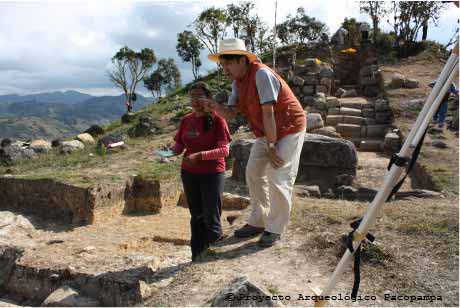
【Purpose and Background of the Research】
This project aims to clarify the formation of complex society in Andean Civilization (meso level analysis) and the formation of civilizations in the human history (macro level analysis) by introducing a new concept of “power” into the analysis, by using an interdisciplinary approach in our archaeological investigation (micro level analysis). New excavations will be carried out together with a systematic reanalysis of the results of Andean research by Japanese expeditions over the last 50 years.
Conventional theories about Andean civilization often takes as their standing point images of the Inca Empire as it appears in historical records written after Spanish conquest. Previous Japanese investigations have emphasized the description of excavated sites and materials, with limited analysis. In our project we will avoid Inca-centric analysis, and at the same time we will reinterpret the huge quantity of data accumulated by the Japanese expeditions. The new approach through new excavations to understanding “power” will be tested, and we will develop a new theory of civilization that does not depend primarily on studies of the Inca.
【Research Methods】
The main project activities will be:
1) Archaeological excavations at the Pacopampa site in the northern highlands of Peru, a site which belongs to the Formative Period (B.C.3000-A.D.1) in the early phase of Andean Archaeology (micro level analysis).
2) Interdisciplinary analysis of the materials recovered from the excavations using the methods of physical anthropology, geology and conservation science (micro level analysis).
3) In each analysis, the apparent sources of “power” will be identified in relation to economy, military affairs, and ideology and attention will be given to how social leaders could exercise “power” by combining the different sources of “power” (micro level analysis).
4) Comparisons of our new data with the data of other archaeological sites of the same period in the northern highlands. GIS database will be developed and published. To broaden the scope of our comparisons, we will conduct workshops with North American researchers who are working with other Formative Period sites (meso level analysis).
5) Symposiums will be held to relate our work to the formation of the civilizations more widely in the Americas and in Western Eurasia. By relating record in the Andes to records in other regions, we may discover new ways to interpret our data (macro level analysis).
